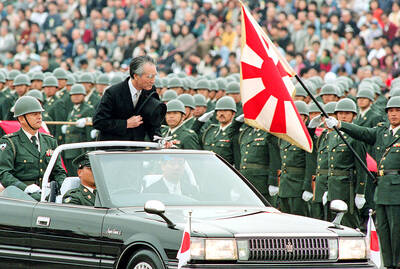Israel’s defense minister said that a daylong visit to Turkey had helped end an ugly diplomatic feud, but analysts expressed skepticism that the trip would ease tensions rising since Israel’s Gaza war.
Israeli Defense Minister Ehud Barak told reporters on Sunday that the countries had moved beyond a disagreement that erupted after Israel’s deputy foreign minister deliberately humiliated the Turkish ambassador to express anger over an anti-Israeli show on Turkish TV.
Israel apologized, and Barak said at a joint news conference with Turkey’s defense minister that, “I believe it was a mistake, and the right step was taken according to the norms of diplomacy.”
“It is appropriate that all the ups and downs in our relationship over the years should be solved and put behind us,” Barak said.
Turkish Prime Minister Recep Tayyip Erdogan said he was satisfied with Barak’s description of the humiliation as a mistake and said Turkey would not pursue the issue further.
Turkish Defense Minister Vecdi Gonul did not address the diplomatic spat directly and said the two countries had common interests but delivered an assessment of the relationship that Israeli analysts saw as lukewarm at best.
“We are strategic allies as long as our interests force us to do so,” said the minister, who is not a fluent English speaker. “We are living in the same area. Although we don’t have common borders, we have the same interests.”
Turkish defense ministry officials could not be reached for comment on the his choice of words. But Israeli analysts described the remark as evidence that relations were not back to what they were.
“The honeymoon days of the ’90s are over and will not return,” said defense analyst Alon Ben-David, reporting from Ankara for Israel’s Channel 10 TV.
Turkish analysts said they doubted that Turkey was prepared to back away from its harsh criticism of Israel’s offensive in Gaza a year ago, a conflict that threatened the military and economic alliance between the two countries.
“It is not possible for relations to return to the warm level they were at up until recently,” said Ali Tekin, an assistant professor of international relations at Ankara’s Bilkent University.
Dogu Ergil, a former political science professor at Ankara University and a columnist for Zaman newspaper, said neither country was ready to break off ties but Turkey wanted to keep relations at a low profile.

The Venezuelan government on Monday said that it would close its embassies in Norway and Australia, and open new ones in Burkina Faso and Zimbabwe in a restructuring of its foreign service, after weeks of growing tensions with the US. The closures are part of the “strategic reassignation of resources,” Venezueland President Nicolas Maduro’s government said in a statement, adding that consular services to Venezuelans in Norway and Australia would be provided by diplomatic missions, with details to be shared in the coming days. The Norwegian Ministry of Foreign Affairs said that it had received notice of the embassy closure, but no

A missing fingertip offers a clue to Mako Nishimura’s criminal past as one of Japan’s few female yakuza, but after clawing her way out of the underworld, she now spends her days helping other retired gangsters reintegrate into society. The multibillion-dollar yakuza organized crime network has long ruled over Japan’s drug rings, illicit gambling dens and sex trade. In the past few years, the empire has started to crumble as members have dwindled and laws targeting mafia are tightened. An intensifying police crackdown has shrunk yakuza forces nationwide, with their numbers dipping below 20,000 last year for the first time since records

EXTRADITION FEARS: The legislative changes come five years after a treaty was suspended in response to the territory’s crackdown on democracy advocates Exiled Hong Kong dissidents said they fear UK government plans to restart some extraditions with the territory could put them in greater danger, adding that Hong Kong authorities would use any pretext to pursue them. An amendment to UK extradition laws was passed on Tuesday. It came more than five years after the UK and several other countries suspended extradition treaties with Hong Kong in response to a government crackdown on the democracy movement and its imposition of a National Security Law. The British Home Office said that the suspension of the treaty made all extraditions with Hong Kong impossible “even if

Former Japanese prime minister Tomiichi Murayama, best known for making a statement apologizing over World War II, died yesterday aged 101, officials said. Murayama in 1995 expressed “deep remorse” over the country’s atrocities in Asia. The statement became a benchmark for Tokyo’s subsequent apologies over World War II. “Tomiichi Murayama, the father of Japanese politics, passed away today at 11:28am at a hospital in Oita City at the age of 101,” Social Democratic Party Chairwoman Mizuho Fukushima said. Party Secretary-General Hiroyuki Takano said he had been informed that the former prime minister died of old age. In the landmark statement in August 1995, Murayama said